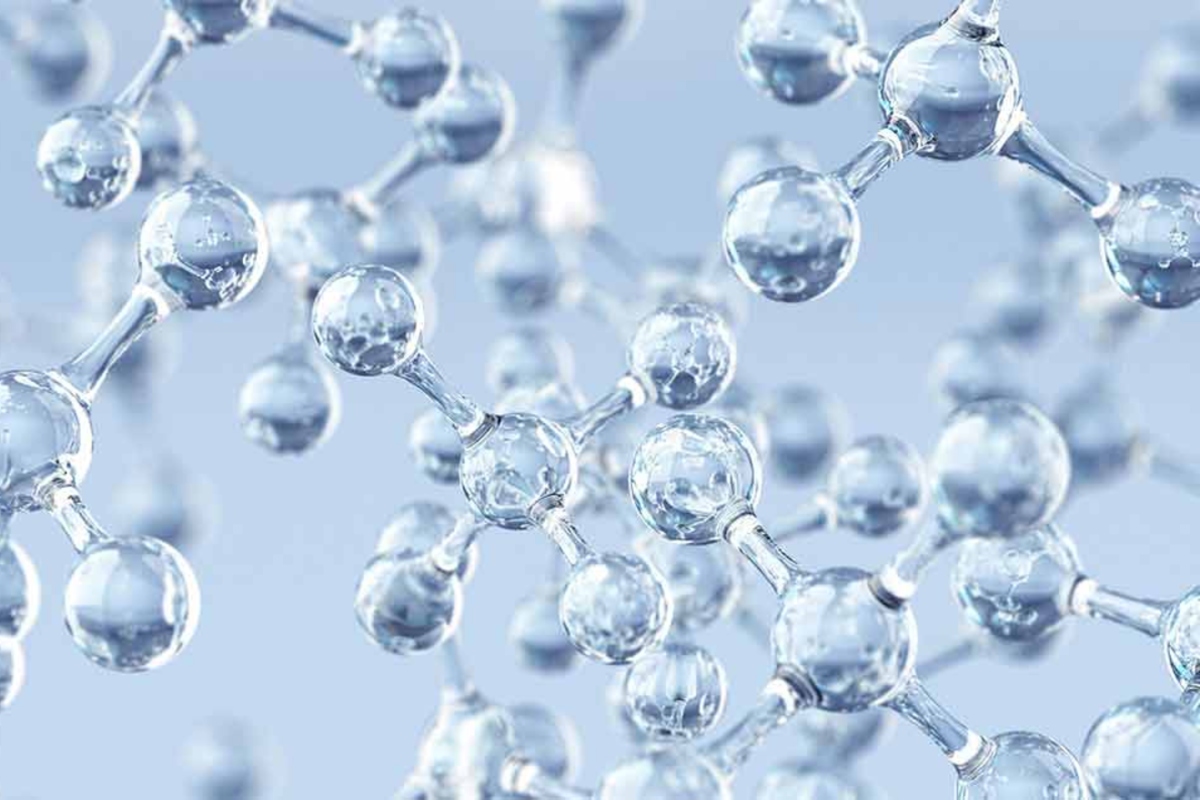Hyaluronic Acid benefits the skin both on the surface and in its deeper layers, so hyaluronic acid creams and serums can be an effective way to refresh your beauty and skincare routine and give your skin a hydration boost. your skin.
"Acid" might sound a little scary, but hyaluronic acid is the good kind of acid.
It is found naturally in the body with the largest volume found in the skin and the highest concentrations in the eyes and joints. Since it maintains a natural role in joint health, many people take hyaluronic acid supplements for various joint disorders.
joints. But its benefits aren't limited to the eyes and joints—hyaluronic acid is super hydrating, making it one of the best skin care ingredients for hydration.
Scientifically speaking, what is Hyaluronic Acid? It is a thick, thick substance. It is clear like water but has a gel like texture. Its high viscosity makes it excellent for maintaining tissue lubrication and moisture.
While this doesn't sound like an appealing substance (who would want to rub a slimy liquid on their face?), Hyaluronic Acid is a powerful substance that, when used in skin care products, affects the way the skin responds to injury , dehydration and other skin problems.
Wondering why so many skin care products are packed with it if it occurs naturally in our bodies? The truth is that we produce Hyaluronic Acid in small amounts and this amount decreases even more with age. Hyaluronic acid is synthesized and used daily by the body, so to maintain hyaluronic acid levels in your skin, be sure to use regularly hyaluronic acid products.
How to spot it on ingredient labels
If there's one thing that makes us question our IQ, it's cosmetic ingredient labels. Just when we think we've learned the names of the ingredients, the industry confuses us further with unpronounceable scientific, chemical names.
You may have better luck finding Hyaluronic Acid in serums and creams since cosmetic companies are proud of this ingredient and want to advertise it in their products.
However, hyaluronic acid and its various forms also have a few other names:
- Sodium Hyaluronate or Sodium Hyalyronate
- Hyaluronan
- Glucosaminoglycan or Glucosamine (Glucosamine) common in dietary supplements.
You may also see it written in other languages:
French: Acide Hyaluronique
Spanish: Ácido Hialurónico
Where does hyaluronic acid in beauty products come from?
Since it is naturally found in human tissues, especially in the eyes and joints, you may be wondering how this ingredient is utilized in skin care.
There are two main sources of hyaluronic acid:
- Hyaluronic acid vegetable origin
- Hyaluronic acid of animal origin
Plant hyaluronic acid is extracted by microbial fermentation. This is a fancy way of saying that a bacterial strain naturally contains Hyaluronic Acid and is then fermented to yield the desired molecular weights ideal for skin care purposes.
Some plant-based hyaluronic acids may contain wheat. Although this is less common, it is important to double check if you are sensitive to wheat products.
Hyaluronic Acid of animal origin.
Hyaluronic acid of animal origin uses the combs or otherwise the feathers of roosters. Like humans, other animals also produce hyaluronic acid in their bodies, and rooster comb is considered one of the best animal sources.
How do you know if your hyaluronic acid creams are of plant or animal origin?
Rest assured, animal lovers, microbial fermentation is the most common way to source Hyaluronic Acid. Not only is it more cost-effective for manufacturers, and therefore consumers, but it is also more environmentally friendly as it produces less environmental pollution.
Most natural, organic, and vegan skin care lines use plant-based hyaluronic acid in their formulations, but animal-based hyaluronic acid is still commonly used in hyaluronic acid supplements and injections.
If you are vegan or concerned about the ethics of hyaluronic acid derived from rooster comb, double check with the product manufacturer.
Cosmetic properties of Hyaluronic Acid
In cosmetics, hyaluronic acid has three main functions:
- Moisturizes the skin
It works primarily as a humectant, a substance that attracts water and transports water to the surface of the skin. Hyaluronic acid does not create water, but draws water either from the atmosphere or from deep within the skin to hydrate the outer layer of the skin. Its moisture-binding property and ability to retain water make it an essential ingredient in moisturizing skin care products.
- Antiaging properties
Its intense moisturizing properties make Hyaluronic Acid essential anti-aging factor. This is because hydrated skin appears to have fewer fine lines and wrinkles, giving a more youthful-looking effect.
Goodlife Tip: Moisturizing the skin is the first step in its antiaging!
- Heals skin injuries
Hyaluronic acid is a popular medicinal substance for people with eye and joint injuries due to its proven abilities to heals wounds. Skin is no exception. Hyaluronic acid plays a key role in tissue regeneration, specifically skin repair. This can be useful if you have damaged skin affected by scars, inflammation, burns, lesions and other wounds.
Many studies have been conducted on the toxicology and efficacy of hyaluronic acid derivatives and have determined that they do not cause cancer, skin sensitivity, or other significant side effects. This is due to its natural presence in the human body.
Our stance on cosmetic safety is that a product is only as safe as its most toxic ingredient. Although Hyaluronic Acid does not exhibit any toxicity, always check your cosmetics - even your Hyaluronic Acid creams - for potentially toxic ingredients.
